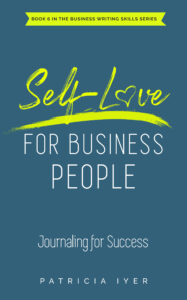Your willingness to journal may depend on your personality type.
For a long time, psychology identified people as either introverts or extroverts. There was no in between. Now, like many other psychological categories, psychologists see a spectrum and add a midpoint category called ambiverts or omnivores. Understanding where you fall on the spectrum is important because it tells you some of the challenges you may encounter in keeping a journal.
Examples of Personality Types
Journal Writing for Extroverts
Extroverts thrive on social interactions. They enjoy being around other people and are often leaders when organizing group projects.
Sometimes extroversion gets confused with narcissism. Extroverts and narcissists both thrive on human connection. However, narcissists have no inherent connection with others. In a social setting, a narcissist must be the center of attention. They are interested in people the way a vampire is, except that what they suck out of people is their energy. Extroverts are far more benevolent; they are interested in getting to know other people and asking questions about themselves.
In contrast, being alone drains them. They have many friends and always seek opportunities to expand their social circles.
Another way to describe extroverts is to say that they are outward-focused. They get their primary sources of information from the outside world. If they have to make decisions, they may ask friends, sometimes many, for their opinions.
There’s nothing wrong with finding one’s greatest happiness in the company of others, but having an exclusively outward orientation can cause imbalance. It can lead to the inability to be alone. It means ignoring the vital information we receive from within. Extroverts hear the phrases “inner guidance,” “inner wisdom,” or “inner anything” and think, “Not going there.”
Extroverts May Not Want to Journal
Extroverts may not desire keeping a journal unless it’s a record of social interactions.
If you are an extrovert, you may have to approach the practice of journaling in small steps. If you start to tread into what feels like threatening territory, stop. Go as far as you can. No one’s handing out medals for violating the habits of a lifetime.
 Your most productive approach will focus on the benefits of journaling that I’ve outlined in my book, Self-Love for Business People: Journaling for Success. Order it at patiyer.com/books.
Your most productive approach will focus on the benefits of journaling that I’ve outlined in my book, Self-Love for Business People: Journaling for Success. Order it at patiyer.com/books.
As an extrovert, you may be wondering, “I’m a great networker with many valuable contacts in my professional network. I know how to make a sale—but I’m treading water in my business. I’m not reaching the goals I’ve set. Could it be true that I have answers inside me? Is it worth taking the risk to see? “I took a risk when I started this LNC business. I’m willing to take financial risks with it. Let me see if I can take the risk to look inside for some answers.”
Journal Writing for Introverts
Let’s look at the other side, introversion. I am an introvert—although less of one than I used to be.
Introverts love to be alone. They’re the happiest reading a good book, watching an interesting movie, sitting quietly and thinking, watching the animals outside, or enjoying a sunset.
Introverts aren’t necessarily afraid of people. They often have an intuitive awareness of people and can pick up subtle clues about their personalities. As extroverts can be labeled narcissists, introverts are wrongly categorized as shy.
The confusion arises because seventy percent of highly sensitive people (HSP) are also introverts. HSPs have low thresholds for sensory overload. This means that they may become drained in a crowd by over-stimulating sensations. They do enjoy interactions they consider meaningful but prefer interacting in discussions in small groups.
You might think that introverts are likely to have this journaling thing down. They are introspective and intuitive. They love being alone with their thoughts; they adore self-examination.
This love of introspection is true of many introverts, mainly those who have come to terms with who they are and may rejoice in their ability to draw strength from their inner guidance. Because they are inwardly focused, they value their insights and intuitions. This causes greater self-appreciation and self-love.
Journal Writing
However, the above doesn’t describe every introvert.
Like many introverts who were also HSPs, I got hit with the “shy” label very young. I didn’t have the vocabulary or experience to explain the sensory overload I often felt.
As much as I loved reading books, I sometimes felt as if it were a guilty pleasure. Did my fascination with my inner world mean I was too self-absorbed? I kept a diary during high school and documented my interests, boyfriends, and activities.
Not until I was in college and discovered people like me did I learn to embrace who I was. I realized that my ability to “read” other people helped me facilitate and solve interpersonal issues.
If you are an introvert and HSP who’s learned to feel bad about yourself, keeping a journal can be your road to self-acceptance and self-love.
Journal Writing for Ambiverts
At this point, you may be thinking, “Neither of these personalities describes me. Sometimes I love a party, and sometimes want to be alone.”
You’re in good company. According to Psychology Today, psychoanalyst Carl Jung, who coined “introversion” and “extroversion,” believed most people fell into neither category but incorporated both personalities into their social behavior. [1]
Ambiverts are adaptable. To put this in graphic terms, if an ambivert has to network at a convention, they will adapt their behavior to that need. They may be more discriminating in approaching a big party and find it necessary to recharge their spirits in solitude. They may beg off when the others go out at the end of the day for a night of drinking and socializing.
If an ambivert is convinced that journaling will be beneficial, they will readily commit to writing regularly. This willingness will activate the introverted, introspective aspect of their personality.
Journaling is beneficial for everyone. Understanding your personality type will help you in your approach to journaling if you do not journal yet.
My book, Self-Love for Business People: Journaling for Success, will take you deep into the journaling process. Grab your copy at http://patiyer.com/books.
[1] https://www.psychologytoday.com/us/blog/the-gen-y-guide/201710/the-majority-people-are-not-introverts-or-extroverts.

Pat Iyer is president of The Pat Iyer Group, which develops resources to assist LNCs in obtaining more clients, making more money, and achieving their business goals and dreams.
Pat’s related websites include the continuing education provided on LNCEU.com, the podcasts broadcast at podcast.legalnursebusiness.com, and writing tips supplied at patiyer.com.
Get all of Pat’s content in one place by downloading the mobile app, Expert Edu at www.legalnursebusiness.com/expertedu. Watch videos, listen to podcasts, read blogs, watch online courses and training, and more.
